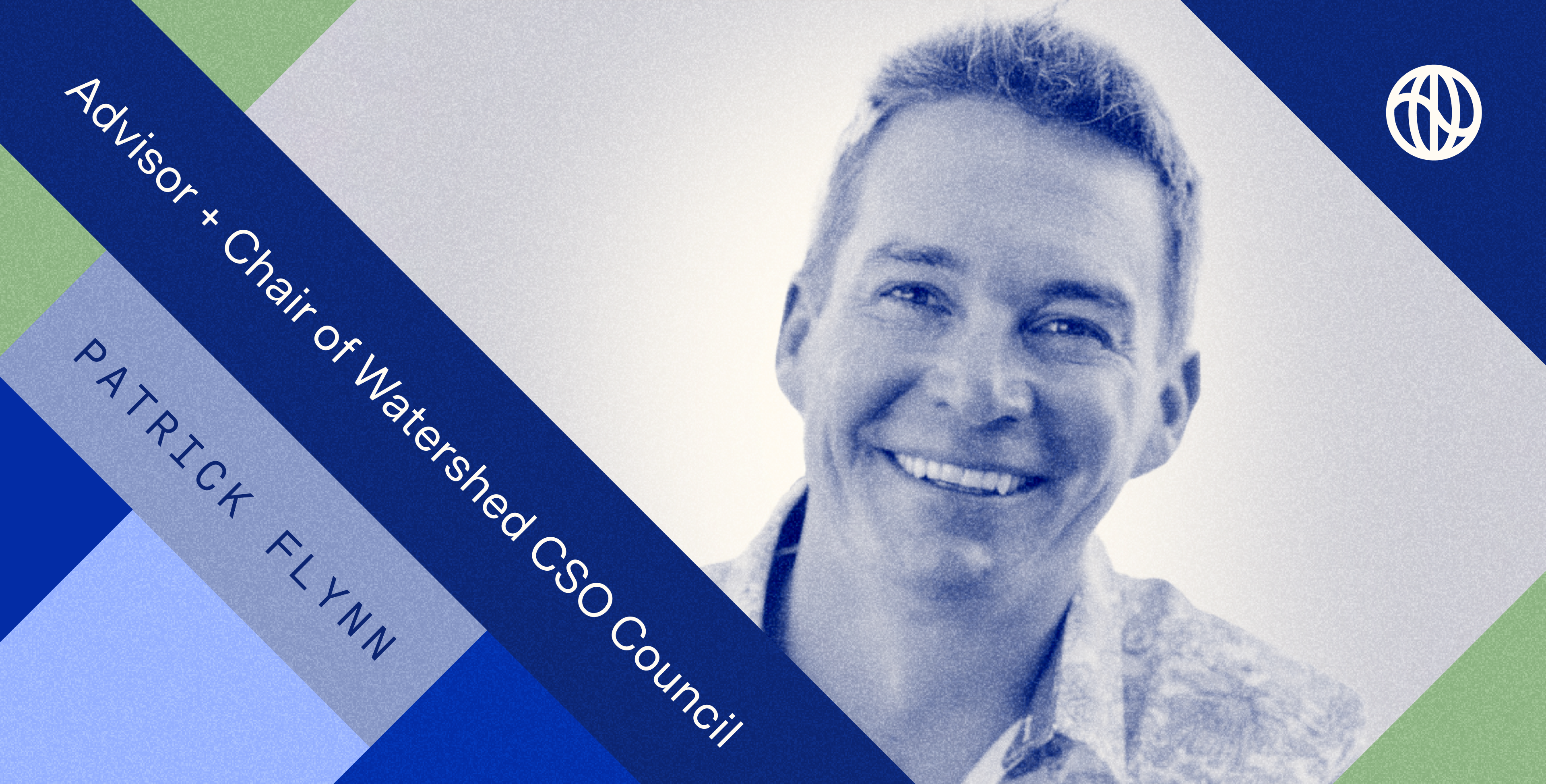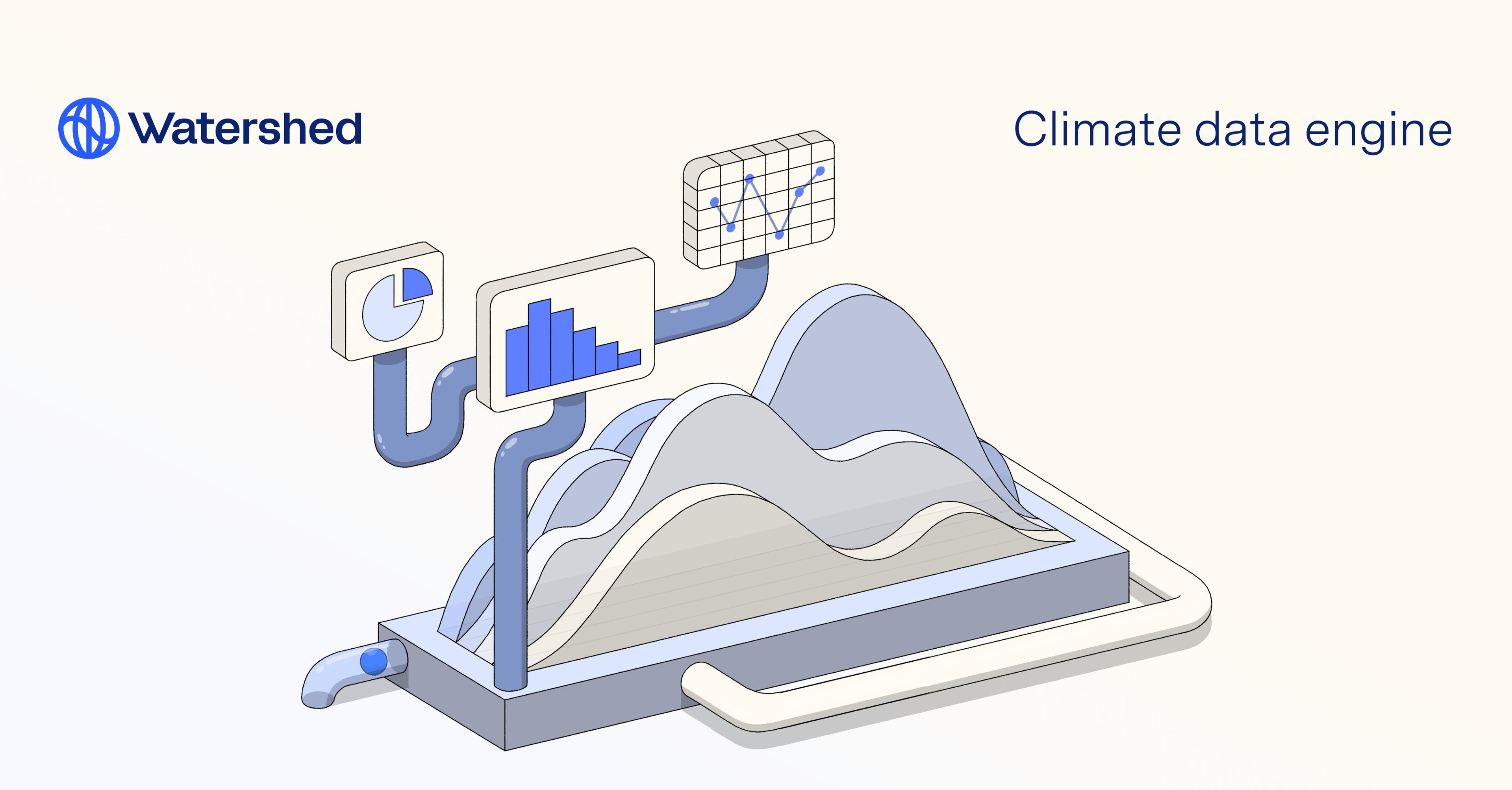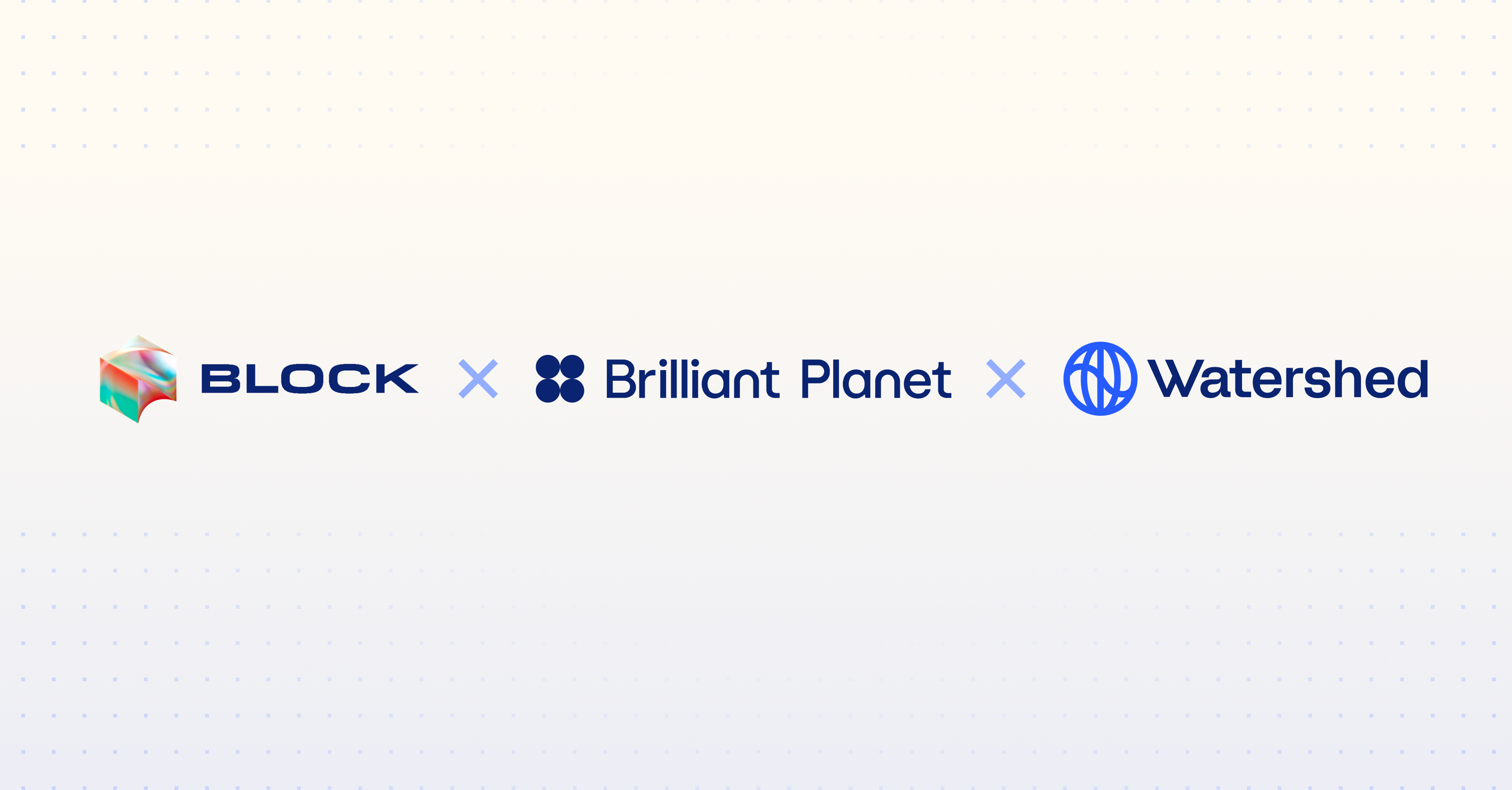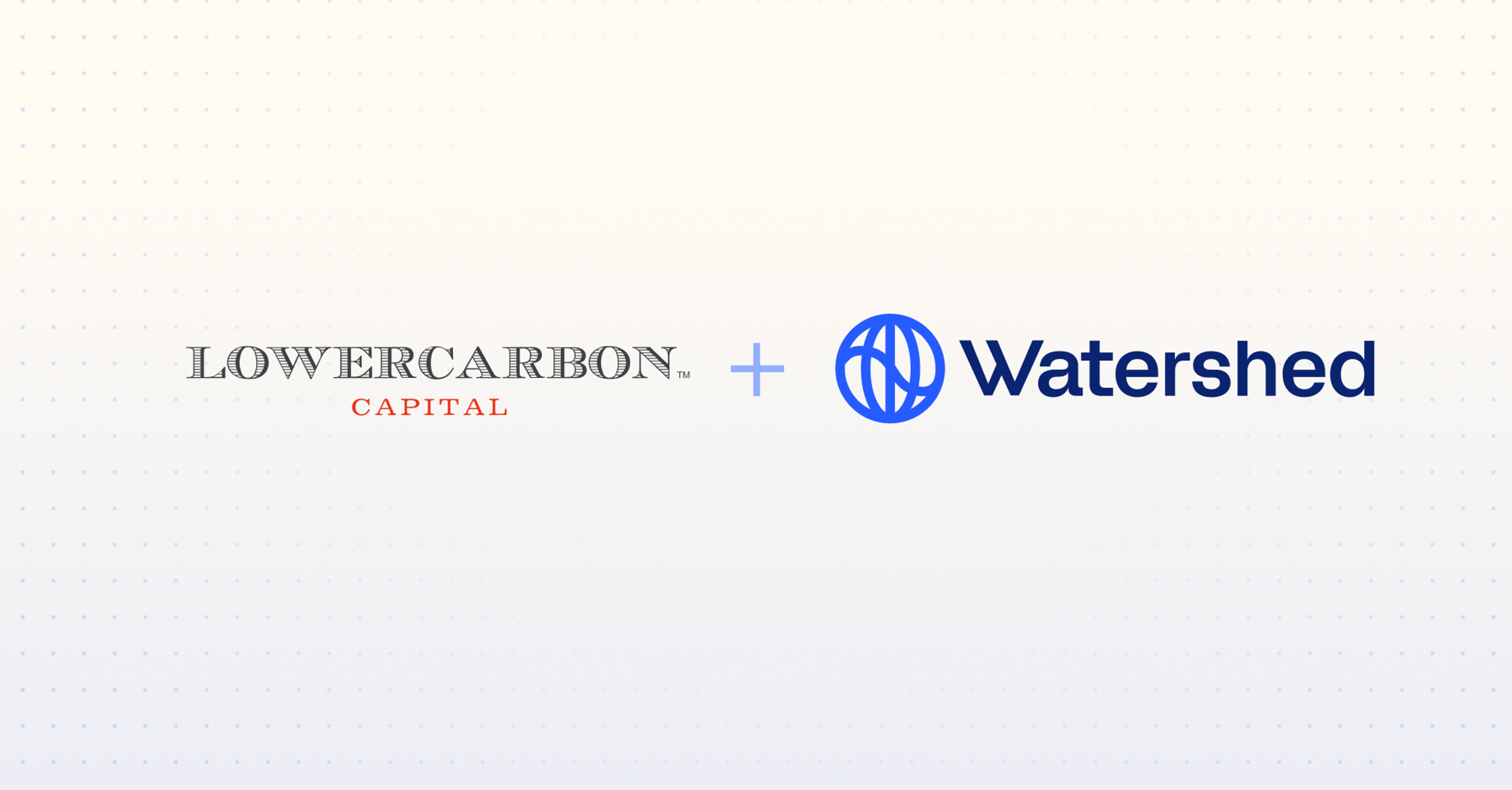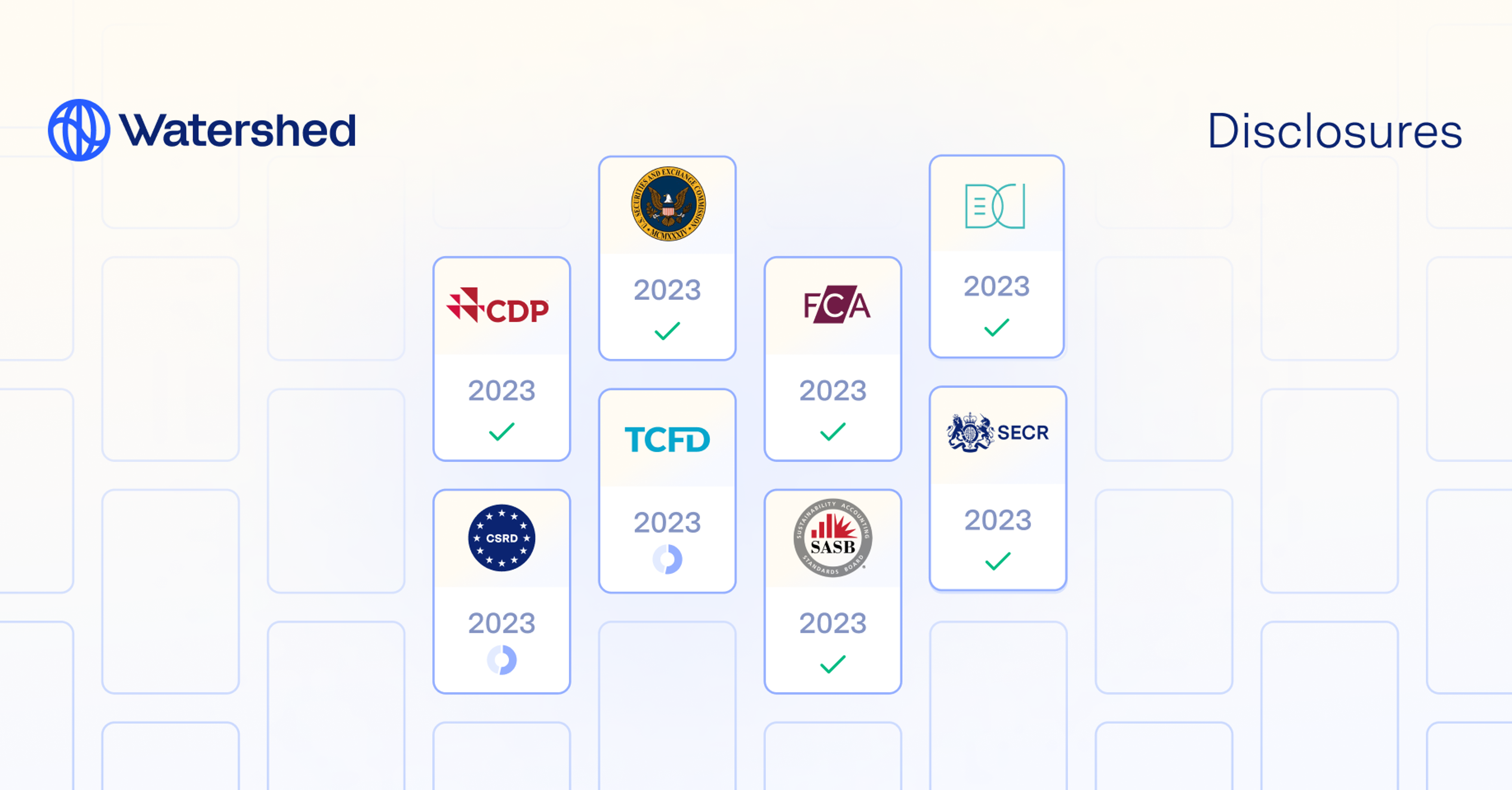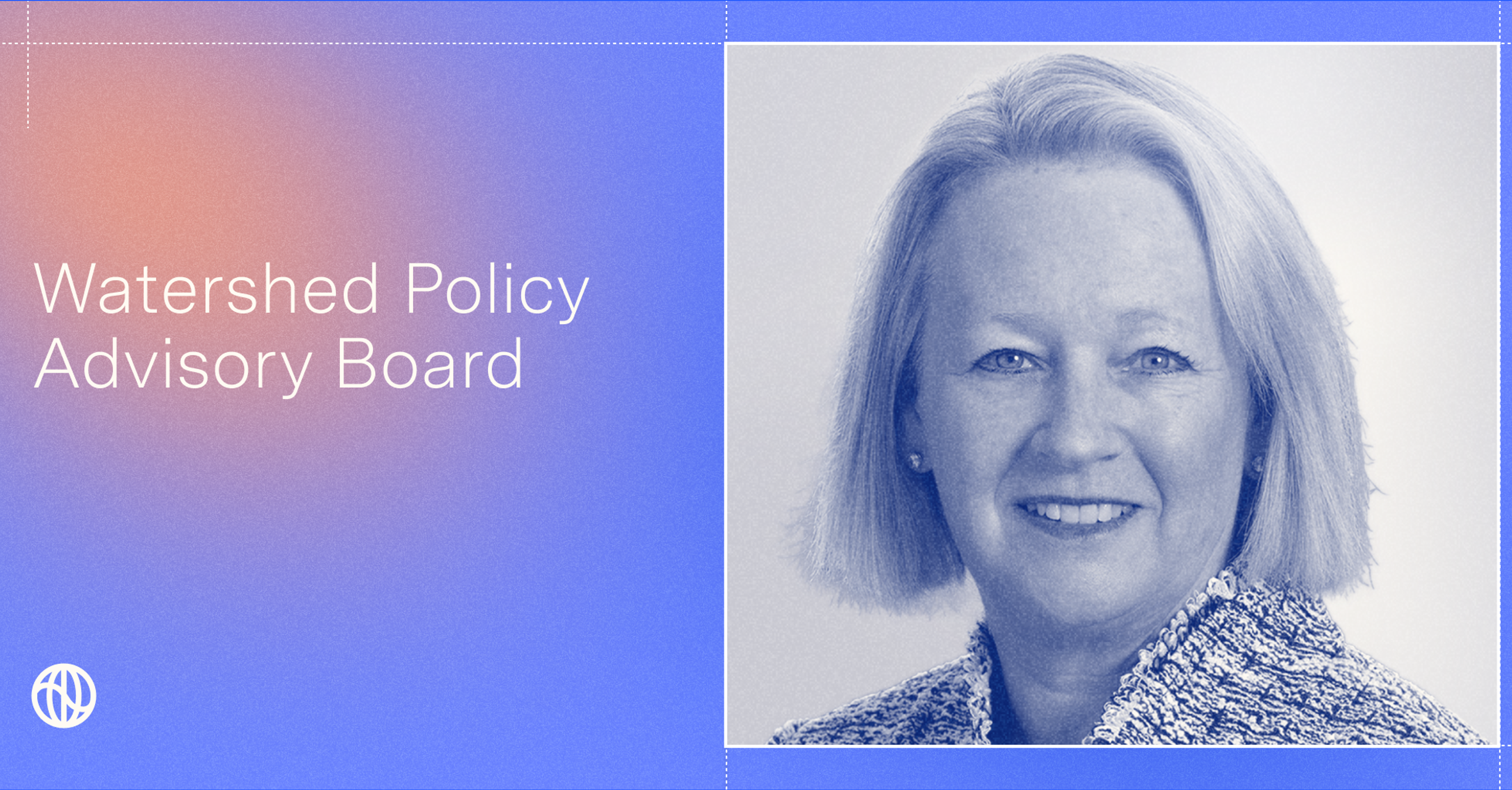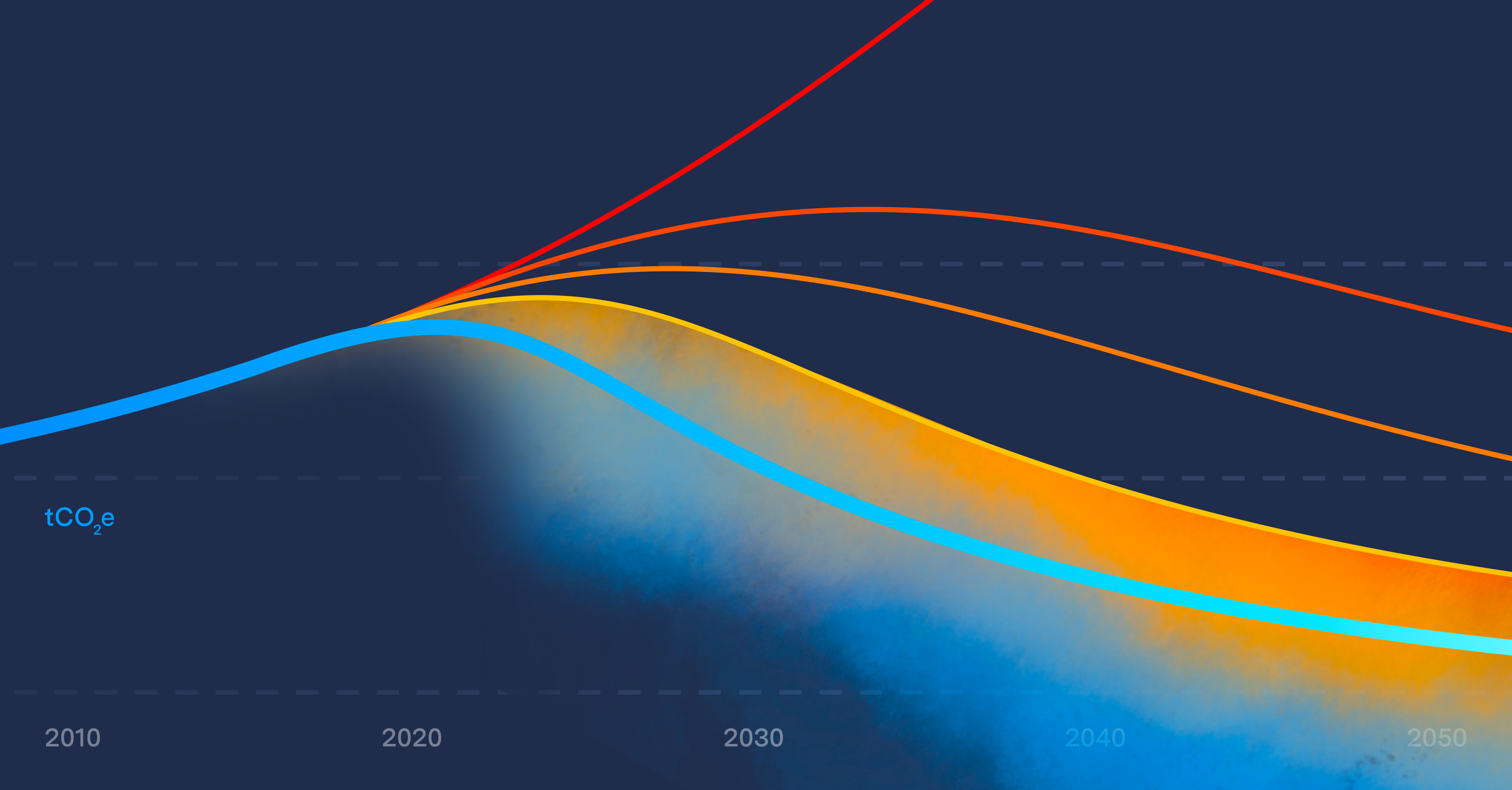Today, we’re excited to share that Patrick Flynn, a longtime climate champion and architect of industry-leading corporate climate programs, has joined Watershed as our newest advisor and chair of our CSO Council. Patrick has spent nearly two decades working at the intersection of environment, technology, and business, and brings a unique combination of boldness and pragmatism to corporate sustainability.
Prior to joining Watershed, Patrick led sustainability at Salesforce, where he spent more than seven years building the program that has become a standard-bearer in corporate climate action. During that time, he worked to bring forward the full power of Salesforce for the planet, by defining and executing a comprehensive strategy with thousands of brilliant collaborators throughout the business and beyond. Through his work, he helped Salesforce achieve net zero emissions and 100% renewable energy, pushed all of its suppliers by making climate a contractual obligation, and helped build and bring to market Net Zero Cloud. He’s been in the trenches with many of the world’s leading companies, helping them craft lasting and impactful sustainability programs—work he plans to continue at Watershed. He currently serves on the board of the Ocean Foundation and is an advisor to Generation Investment Management, TOPO, and Humanitas.
This week, we sat down with Patrick to learn more about what motivates him, why he chose Watershed, and his plans for a new, first-of-its-kind CSO Council. Read our discussion below.
Scientists say we’re in the “critical decade” for climate action. What does that mean to you?
This is by far the most important decade for climate action because there’s still such a wide range of possibilities ahead for what the future of life on our planet might look like. There are all sorts of facts and stories about the bad scenario, and, truth be told, that’s actually the sort of stuff that motivates me personally. I feel a deep responsibility to be able to look future generations in the eye and be able to tell them I did absolutely everything I could.
But for most people, it’s the opportunity that will motivate them and that’s what they should be looking at. With so much at stake, and with everything so intertwined, each hour used for good delivers unprecedented leverage. There’s never been a better way to deliver positive environmental, social and business impact than focusing on climate action today.
We have to take significant steps to reduce greenhouse gas emissions by 2030, or we face catastrophic warming: that part is obvious. What may be less obvious is that, in the next six years, those steps are largely going to come from the private sector. Policy and regulation are important, but they move slowly. Corporations can move fast—and the best ones do—and have an enormous impact on the overall economy. Just look at how Apple has changed how it sources materials, or how Walmart is tackling Scope 3 emissions. There’s huge promise in the private sector, and huge upside for the companies that seize the opportunity first.
You have a track record of helping the world’s leading companies jumpstart their sustainability programs. What are the big lessons you’ve learned along the way?
Changing things is about changing people. You need to put in front of them a vision of the future that’s even more exciting than the path they were otherwise headed down. The tactics and language needed to paint that compelling vision, have to change from one team’s culture to the next. From one company to the next, and even from team to team within a company, you need to observe how big decisions get decided and try to replicate that.
Back when I was leading sustainability for a data center company, the dominant way to look at decisions was through the lens of engineering, quantitative analysis, numbers and logic. Those were the tools I used back then to make the concrete business case for change. Contrast that to Salesforce, where company values like sustainability played such a big part in how decisions get made. There was already a strong bias towards environmental action, so rather than focusing on making the case to act, it was more about making sure the actions we took were highly catalytic and maximized impact beyond our four walls.
When it comes to helping the planet, where do you think you can have the greatest impact?
I asked soooo many people that over the last nine months! And it makes me uncomfortable to talk about myself, so let me say it this way: one of the best answers I got was, “You make everyone you meet feel like they’re critical to the climate movement.” I have to admit that was feedback I’ll cherish forever. And it’s true: I try very hard to observe superpowers (of individuals, teams and organizations) and find ways to plug those superpowers into the right places so that everyone is doing what they do best for the climate.
Tell us about your vision for the CSO Council.
One of the reasons I came to Watershed was the opportunity to really multiply my impact—not just by working at one company doing great things for the climate, but by working with a multitude of different companies that are tackling climate change in different ways.
I want to help my CSO colleagues out there. I know how hard their work is. Two insane jobs: meeting the demands of their executive responsibilities and meeting the needs of a planet in crisis. We need CSOs to be superhuman—to kick ass at their jobs: getting more resources, trust and responsibility—and to kick ass for the planet: delivering new, unprecedented levels of impact. I want to help them and I think that’s what Planet Earth wants me to do too.
“We need CSOs to be superhuman—to kick ass at their jobs: getting more resources, trust and responsibility—and to kick ass for the planet: delivering new, unprecedented levels of impact.”
So, kind of a super-network of climate leaders?
Exactly. And we even joked about Avenger-type Planeteers-type nicknames! The planet needs the leading CSOs to get to an even higher level of impact. The next big wave of climate action needs to come from initiatives not from within a single company, or even a single value chain, but spanning companies, geographies and industries. Groups of companies, moving in lockstep, can unblock big barriers and create big momentum.
Working in climate can be inspiring, but also exhausting. What keeps you going?
I have all these moments all the time where it hits me: ‘How lucky am I?’ From family, to health, to work I care about that fascinates me. Across the board, I’ve already won the lottery. That sense of gratitude and privilege is the fuel that keeps me going. In short, a feeling of ‘if not me, then whom?’
It helps me to imagine a hypothetical run-in with Greta or Bill McKibben or Christiana Figueres, where I’ve got a 30-second elevator pitch to explain what I’m working on. I always want to have something great to say to other experts fixated on how urgently we need things to change. It’s like there’s an imaginary panel of judges watching my behavior. Not just those climate experts but my kids and their descendants too. When they get older and curious about it, they’ll ask what I was doing in 2023. I want them to see a track record of working hard and smart. In some ways, “hard” is the easy part! “Smart,” in this moment, where we need to catalyze big change fast—that’s the complex one.
For a long time I’ve put it this way: Climate change is the biggest, most complex and most important challenge our species has ever faced. Its importance has my commitment; its complexity has me captivated.
